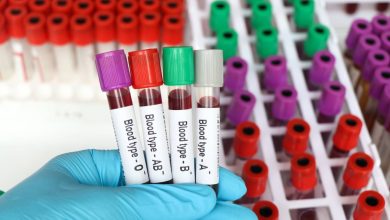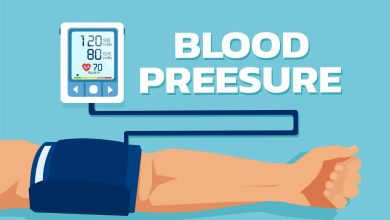“A Negative Blood Type”: What You Need to Know

Understanding your blood type is crucial for various aspects of health and wellness. Blood types are categorized based on the presence or absence of certain antigens, which results in the four main groups: A, B, AB, and O, each of which can be positive or negative depending on the Rh factor.
Knowing your blood type can be lifesaving in emergencies, aid in medical treatments such as transfusions, and play a significant role during pregnancy.
In this guide, we’ll delve into the specifics of the A Negative blood type, explore its implications for your health, and provide practical advice for managing and communicating your blood type effectively. By the end, you’ll have a well-rounded understanding of why knowing your A Negative status is important for your overall health and well-being.
What is A Negative Blood Type?
A Negative blood type is part of the A blood group, which is characterized by the presence of A antigens on the surface of red blood cells. The “negative” aspect refers to the absence of the Rh factor, a protein that can be present on the surface of red blood cells. When the Rh factor is absent, the blood type is categorized as Rh-negative.
Globally, A Negative is relatively uncommon, representing only about 6% of the population. This makes understanding and managing this blood type particularly important, especially in scenarios involving blood transfusions and pregnancy where compatibility becomes crucial.
Health Implications
For individuals with A Negative blood type, understanding compatibility for blood transfusions is vital. A Negative donor can provide blood to other A Negative recipients as well as AB Negative individuals, which makes their contributions to blood banks highly valuable. When it comes to receiving blood, those with A Negative blood can only receive A Negative or O Negative blood, underscoring the importance of matching blood types accurately in medical emergencies.
During pregnancy, A Negative women need to be aware of Rh incompatibility, which occurs when the mother’s Rh-negative blood is exposed to Rh-positive fetal blood. This can lead to the development of antibodies that attack the baby’s red blood cells, a condition that can be prevented with Rhogam injections given during pregnancy and after childbirth.
Additionally, while A Negative blood type does not inherently increase health risks, it does necessitate extra caution and awareness in medical scenarios to prevent complications that may arise from blood type incompatibility. Understanding these implications not only aids in effective medical care but also empowers A Negative individuals to take proactive steps in managing their health.
Blood Donations
Blood donations play a critical role in saving lives and maintaining the health of those suffering from various conditions. For individuals with A Negative blood type, donating blood is particularly valuable due to the rarity and universal donor potential of their type in emergencies.
A Negative blood is highly sought after for transfusions because it can be given to both A Negative and AB Negative recipients, thereby addressing the needs of a wide range of patients.
Encouraging individuals with A Negative blood type to donate is essential, as their contributions help maintain adequate supplies in blood banks and ensure that compatible blood is available for those in critical need.
By stepping forward to donate, A Negative donors not only support the healthcare system but also make a meaningful difference in the lives of countless others.
Managing Your Blood Type
Effectively managing your A Negative blood type involves several proactive steps to ensure your health and safety. Firstly, one of the key tips for navigating healthcare with an A Negative blood type is to always inform your healthcare providers about your specific blood type. This information is crucial during medical procedures, emergencies, and even routine check-ups where blood compatibility might be a factor.
Additionally, wearing a medical ID that clearly states your A Negative blood type can be lifesaving, especially in emergency situations where you may be unable to communicate. These identifiers, such as bracelets or necklaces, provide first responders and medical professionals with immediate access to critical information, facilitating prompt and appropriate care.
By staying informed and ensuring that your blood type is clearly communicated and easily accessible, you can significantly enhance your healthcare experience and ensure that you receive the best possible medical attention.
Myths and Misconceptions
There are several myths and misconceptions surrounding the A Negative blood type that can often lead to confusion and misinformation. One common myth is that individuals with A Negative blood are more prone to certain health problems or have unique dietary needs compared to other blood types.
However, scientific research does not support these claims, as no specific health risks or dietary requirements are directly associated with the A Negative blood type.
Another misconception is that A Negative individuals can donate blood to anyone, which is not accurate. While A Negative blood is versatile, it can only be safely given to A Negative and AB Negative recipients. By understanding the facts and debunking these myths, individuals with A Negative blood can have a clearer and more accurate perspective on their health and their role as potential blood donors.
Conclusion
In conclusion, understanding your A Negative blood type is essential for making informed decisions about your health and well-being. We’ve explored the implications of A Negative blood type, including its significance in blood transfusions and pregnancy, the value of blood donations, and practical tips for managing your health.
By being aware of these key factors, you can take proactive steps to ensure your safety and support the broader community through blood donations. We encourage you to continue learning about your health and to communicate your blood type effectively to healthcare providers.
Knowing your blood type is more than just a detail—it’s a crucial aspect of receiving the best possible care and contributing to life-saving efforts.




